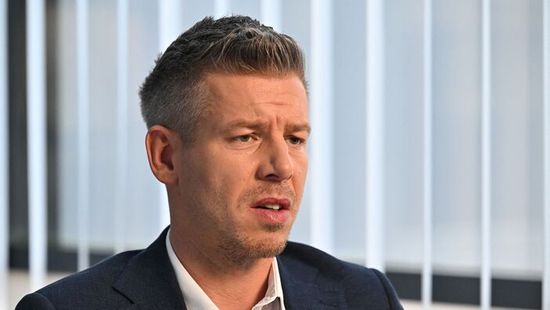Kellemetlen: elhangzott az eddigi legfontosabb mondat Magyar Péter rejtélyes videójáról

Bár a drogos bulibotrány nagyon zavaros, az biztos: Magyar Péter zsarolható – mutatott rá az elemző.

What if, two years before the 9/11 attacks the U.S. had been handed complete access to al-Qaeda and Taliban calls and e-mails?
„One morning in June 2001, three months before the 9/11 attacks on the United States, I happened to be interviewing a senior official from the British Secret Intelligence Service, M.I.6. His current focus was the war on drugs, not international terrorism, but he shared a piece of information that united the two subjects. A short time earlier, the official told me, the U.S. National Security Agency had intercepted a call between two satellite-telephone users in Afghanistan—the al-Qaeda leader Osama bin Laden and the Taliban leader Mullah Mohammed Omar. They had been discussing the Taliban’s ban on growing opium poppies, imposed the previous summer—a remarkably effective edict that had shrunk production in areas they controlled almost to zero.
According to the M.I.6 official, bin Laden sounded unhappy. »Why stop growing opium?« he asked. »Heroin only weakens our enemies«. There was no need to worry, Mullah Omar replied. The ban was merely a tactic. »There has been a glut, and the price is too low. Once the world price has risen, the farmers can start growing it again«.
The real lesson of this overheard conversation was not its specific content but the fact that it could be heard at all. Electronic eavesdropping clearly had potential in Taliban-controlled Afghanistan. But in the years before 9/11, when bin Laden’s terror plot was first being discussed, that potential remained limited. The reason was simple: Afghanistan had no cell phones, no Internet, and only a rudimentary landline network, which did not work at all outside the country’s largest cities. This could be remedied, however. Indeed, by the end of 1999, the Taliban government had embraced a full-fledged American scheme to install a modern cell-phone-and-Internet system in Afghanistan. It could have been up and running within months. The Taliban had already granted an exclusive license to a U.S.-owned firm, the Afghan Wireless Communications Company.”